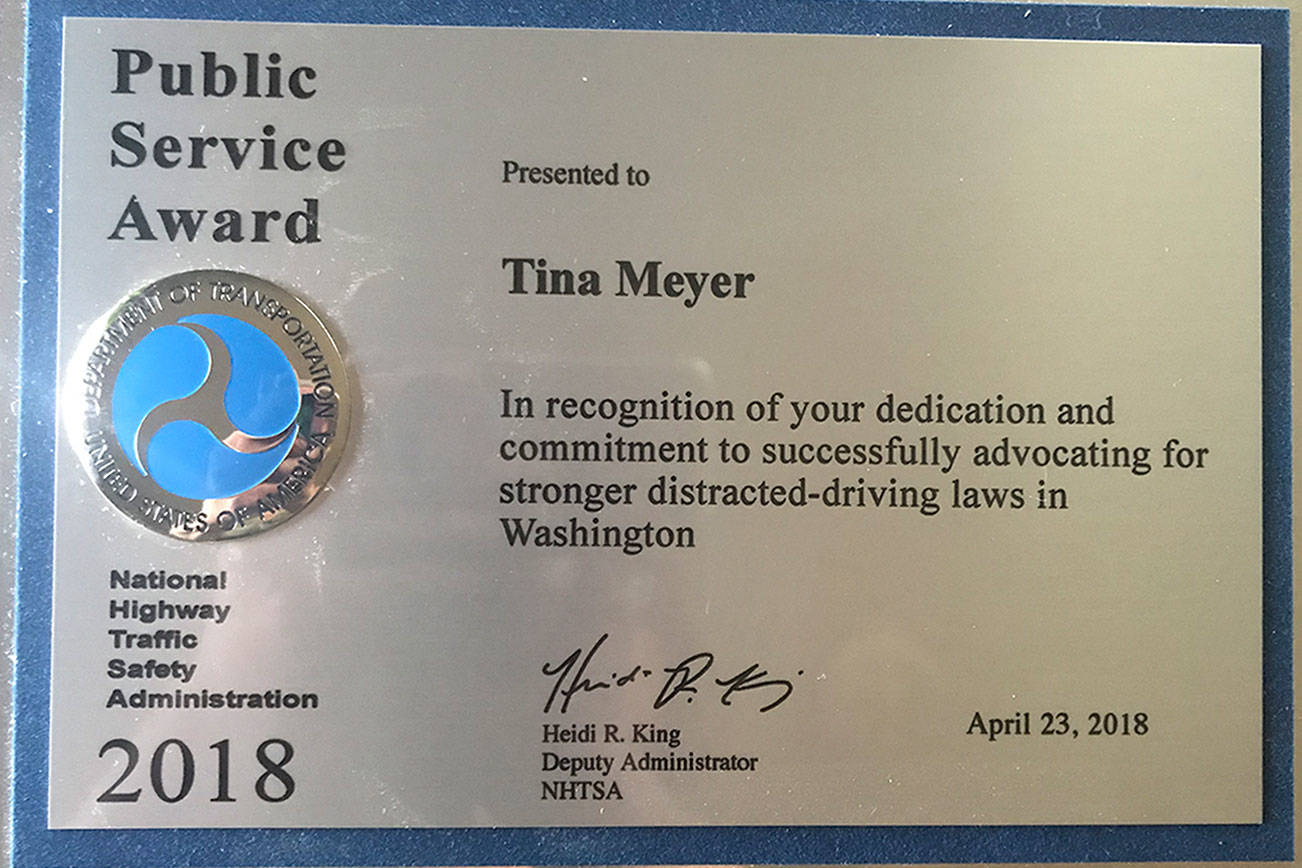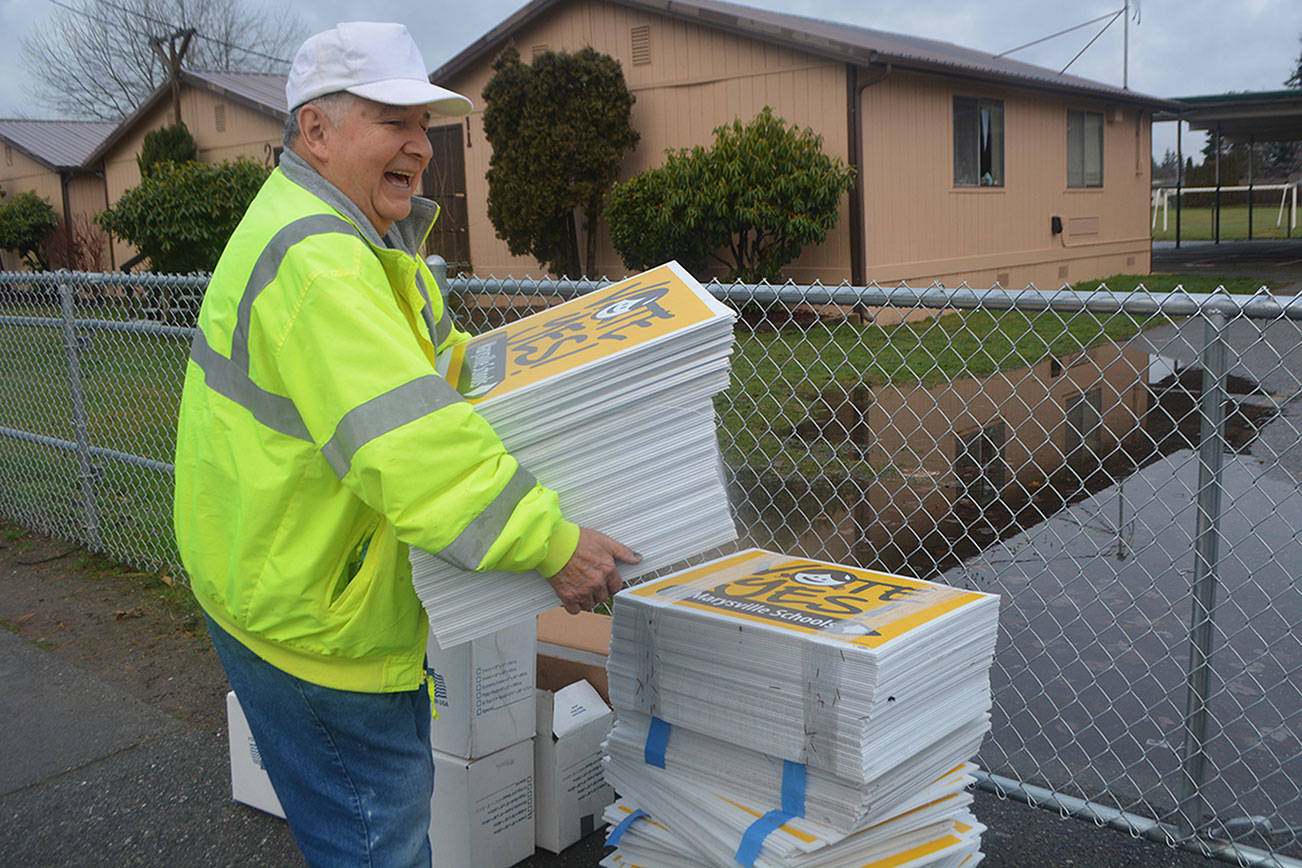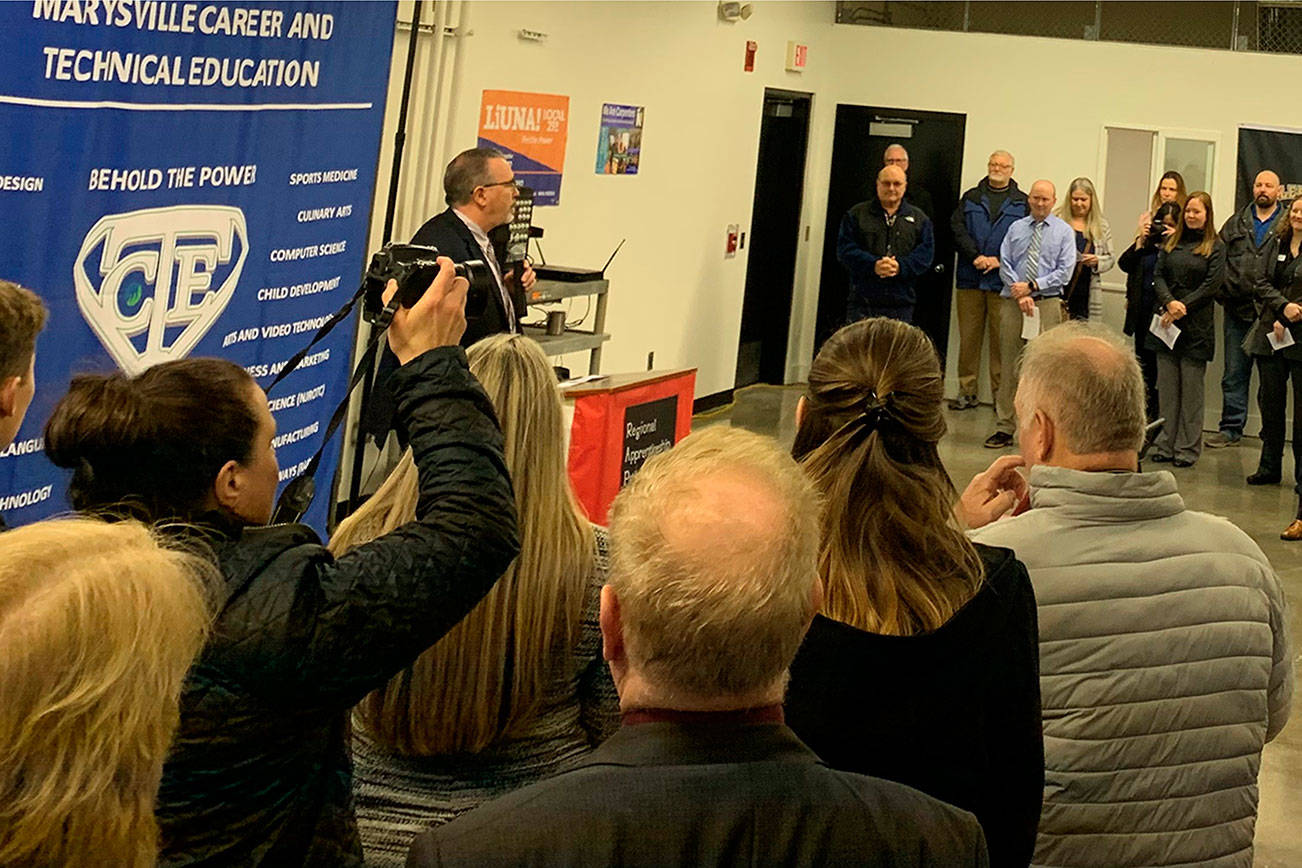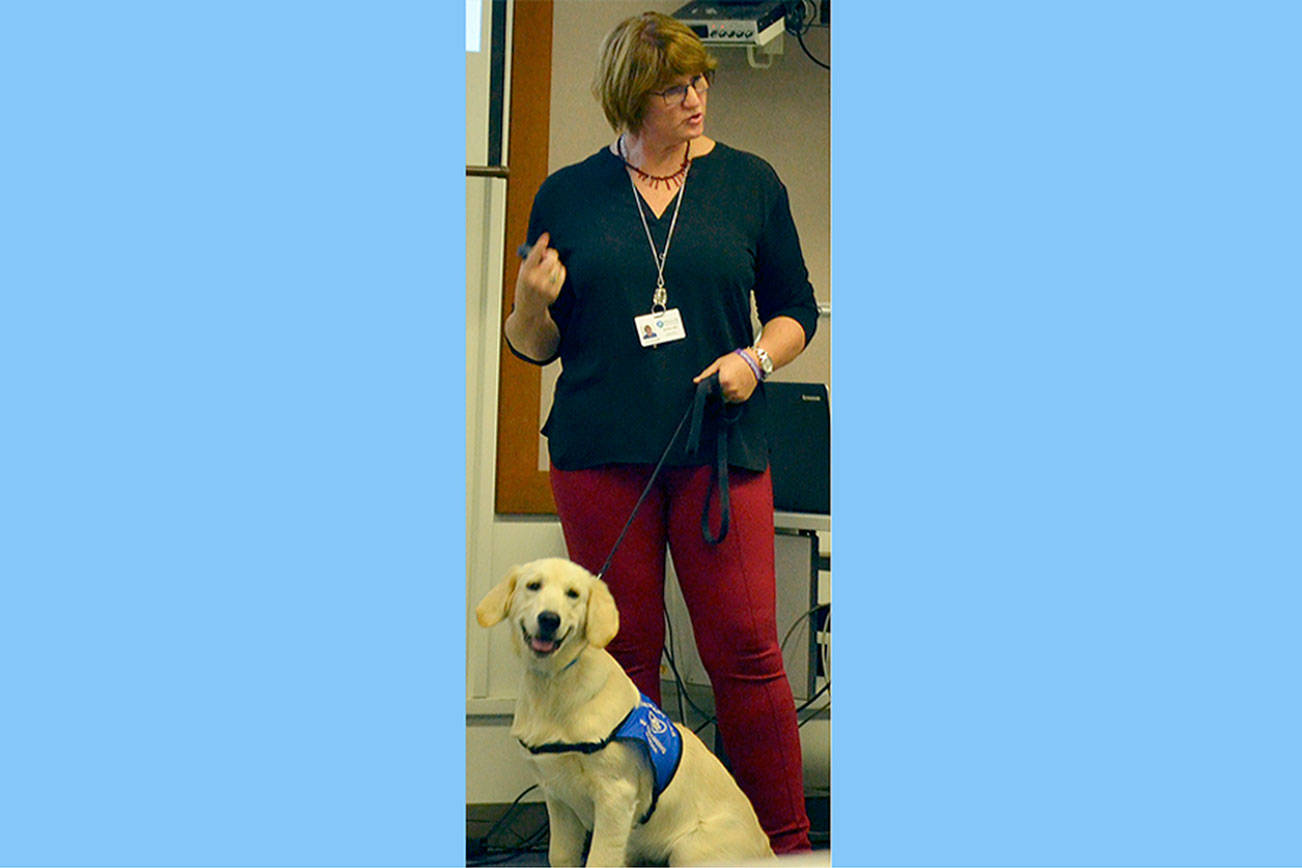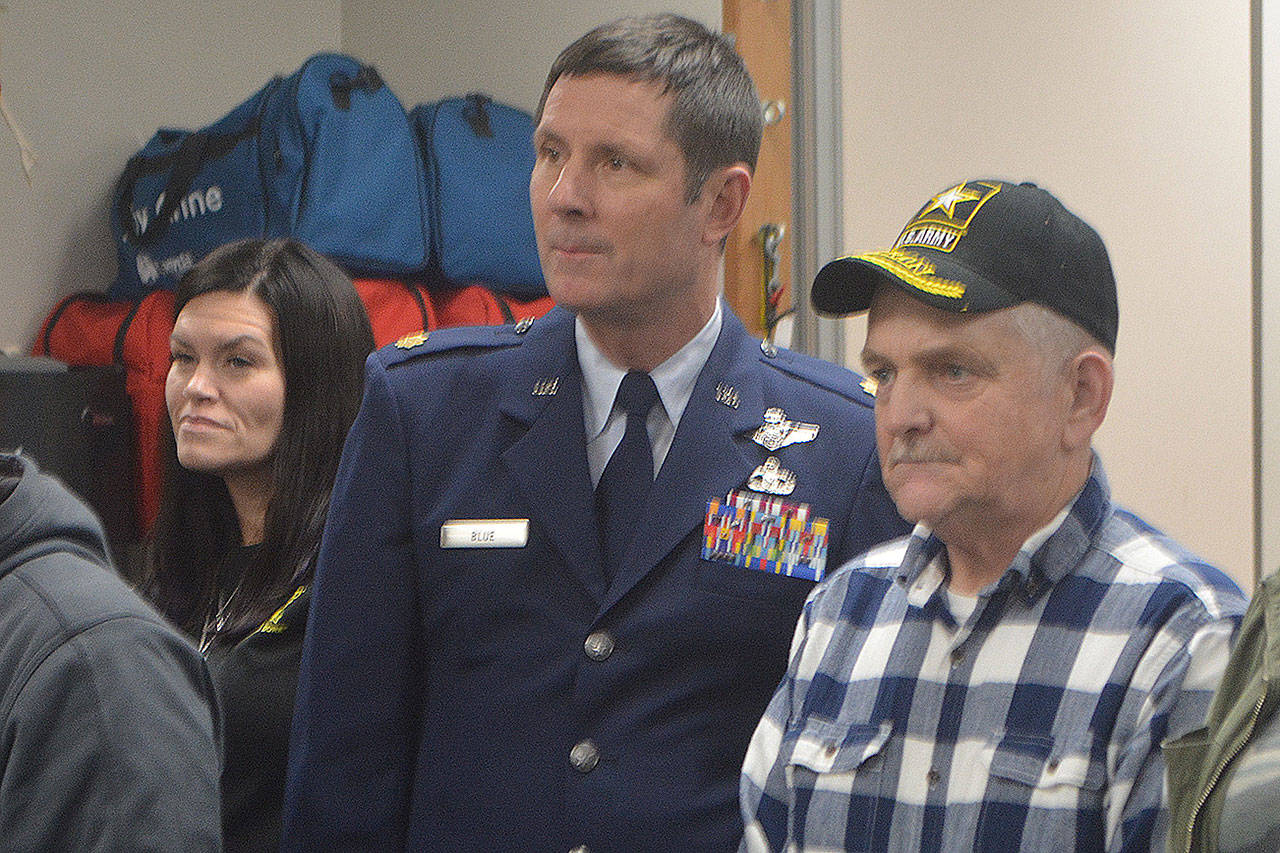ARLINGTON – When Tina Meyer’s son was killed by a distracted driver, she didn’t respond the way many people do – she became an activist instead. “That’s how I deal with things,” she said. “I wasn’t going to let my son’s death be in vain.”
Since the accident Dec. 15, 2015, Meyer has worked with lawmakers to make the state’s distracted driver laws tougher.
On that date, Meyer’s son Cody, 23, was working as a flagger for Diversified Industries in Issaquah when he was hit by a motorist who was checking his email.
“We had distracted driving laws on the books, but they were poor,” said Meyer, who has called Arlington home for 38 years.
The state Senate and House of Representatives were struggling to pass tougher legislation. So Meyers and two others whose children were killed in similar situations started going to Olympia to testify to lawmakers and committees.
Meyer said she was surprised by how many people didn’t want tougher laws. “We were in for a fight,” she said. It wasn’t the first time she had been involved in making laws. Both sons Cody and Kyle have diabetes, and she wanted to make sure if either had a seizure someone at their school would be able to administer aid by using a syringe filled with sugar water.
“It took two years to get that law passed,” she said. “I kind of knew what the routine would be and how hard it is.”
What made the more-recent law so hard to pass was people were worried what would be considered distracted driving. Could the cause be drinking coffee, eating a hamburger or even changing the radio station?
Meyer said it’s as easy as staying in your lane. “If you can maintain your lane you’re fine,” she said. “If you can’t it’s always been against the law – that’s reckless driving.”
Meyer said if you cannot maintain your lane you need to rethink what you can do and not do while driving – for your sake and the sake of others.
“It’s simple logic. But we think we can do it all, or we’ve been driving for a long time,” she said.
Meyer said most people didn’t seem to have a problem with banning phones while driving, even though she still sees people do it all the time.
“If you’re driving while holding a phone that’s against the law,” she said.
Near the end, people were still trying to water down the law.
“Governor Inslee made it perfectly clear that wasn’t going to happen,” she said.
Award winner
As a result of her work, Meyer, along with Lavera Wade and Gina Bagnariol-Benevides, recently received 2018 Public Service Awards by the U.S. Department of Transportation’s National Highway Traffic Safety Administration.
Wade’s grandson Sam was killed in a head-on collision with a semi just before his 21st birthday while texting and driving.
And Bagnariol-Benevides lost her sister and best friend in 2016 when a woman and her husband taking a “selfie” pummeled into their stopped car going 77 mph on a Chehalis highway, killing them.
The three women activists helped pass the state’s Driving Under the Influence of Electronics Act, which bans virtually all uses of hand-held devices by motorists.
“We helped push it through because the deaths were so current,” Meyer said. “They (lawmakers) hear a different story when it’s a death – so young and senseless.”
Meyer said she was shocked to have won the award as she didn’t even know she had been nominated. The three were flown to Texas for a national traffic safety event. Their stories were told, and they received a plaque.
Law could be tougher
Meyer said while she’s glad the law was passed she would have liked to see stiffer penalties. She said in countries like Germany and Britain drivers lose their license for six months and receive an $800 fine. “I would have loved that here,” she said. In Washington, the fine is $132 the first time but double that the second. A key part of the penalty is it is reported to insurance. “That’s very important to us,” Meyer said. “People don’t seem to pay attention until it hits their pocketbook.”
She said Americans think driving is a right, but it’s actually a privilege. “Follow the laws or that privilege will be taken away from you,” she said.
Meyer is active in the community speaking out, too. She talks at both Arlington and Stanwood high schools DUI nights. “We’re trying to get the word out there to younger children just starting to drive,” she said.
She also speaks at Parents Nights. “We remind them you’re not above this,” she said, adding they need to be accountable and held to the same standard of not using phones while driving.
“Our stories do create impact on the groups we speak to,” Meyer said, adding they would like to speak to even more groups.
Meyer said she just doesn’t understand why people risk using their phones while driving. “I don’t get how people can do that,” she said, “other than kids do what they want to do.”
She said the driver who hit Cody in the construction zone was only 32. “That’s young. And he had a one-year-old child with him,” she said.
